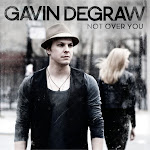 Being a fan of the Dexter TV series, I have to admit that I haven't come to this party unbiased. The first season of the series is loosely based on this, the first instalment of the Dexter novels, so I read with a keen eye.
Being a fan of the Dexter TV series, I have to admit that I haven't come to this party unbiased. The first season of the series is loosely based on this, the first instalment of the Dexter novels, so I read with a keen eye.As a novel, Darkly Dreaming Dexter is a great read. There's a sympathetic hero thrown into a complicated plot, all set against the completely relatable internal politicking of the Miami police department, where he works as a blood-spatter analyst.
So okay, our hero is a serial killer whose internal dark passenger leads him in his bloodlust. Let him who hasn't sinned cast the first stone. Jeff Lindsay's unique character speaks in his own voice (first person) giving us the self-aware, self-deprecating and completely witty worldview of Dexter Morgan. Damaged as a young child, Dexter's adoptive father Detective Harry Morgan saw the traits of a serial killer-in-the-making and set down ground rules for him to follow: Emulate real emotions (Dexter doesn't feel any... or so he thinks). Live unobtrusively and above suspicion. Only kill bad guys. Don't get caught.
Dexter's doing pretty well until a new serial killer appears on the scene, sending him personal messages with his 'artwork' (read: arrangement of bloodless body parts') that positively make him swoon with appreciation. As the search for the killer leads him to discover his own dark past, his firm sense of self is tested, as is his loyalty to sister Deb (a Miami police officer).
Lindsay's writing is compelling and even lyrical, with alliteration being his chosen self-mocking technique ('darkly dreaming Dexter', 'dear dysfunctional Dexter'). Somehow this serial killer's journey of self-discovery draws our sympathy and unspoken alliance. The novel is really about the humanising of a person who considers himself inhuman, not about his acts or compulsions. There are no gratuitous graphic scenes of violence and the writing is smart and tight. All in all, a recommended read.
PS - Would it be mean or sexist to point out that Dexter's inability to understand human emotions (eg. what does his kinda/sorta girlfriend Rita really want?) sounds quite comically at times not the defect of being a monster, but the defect of being male?










